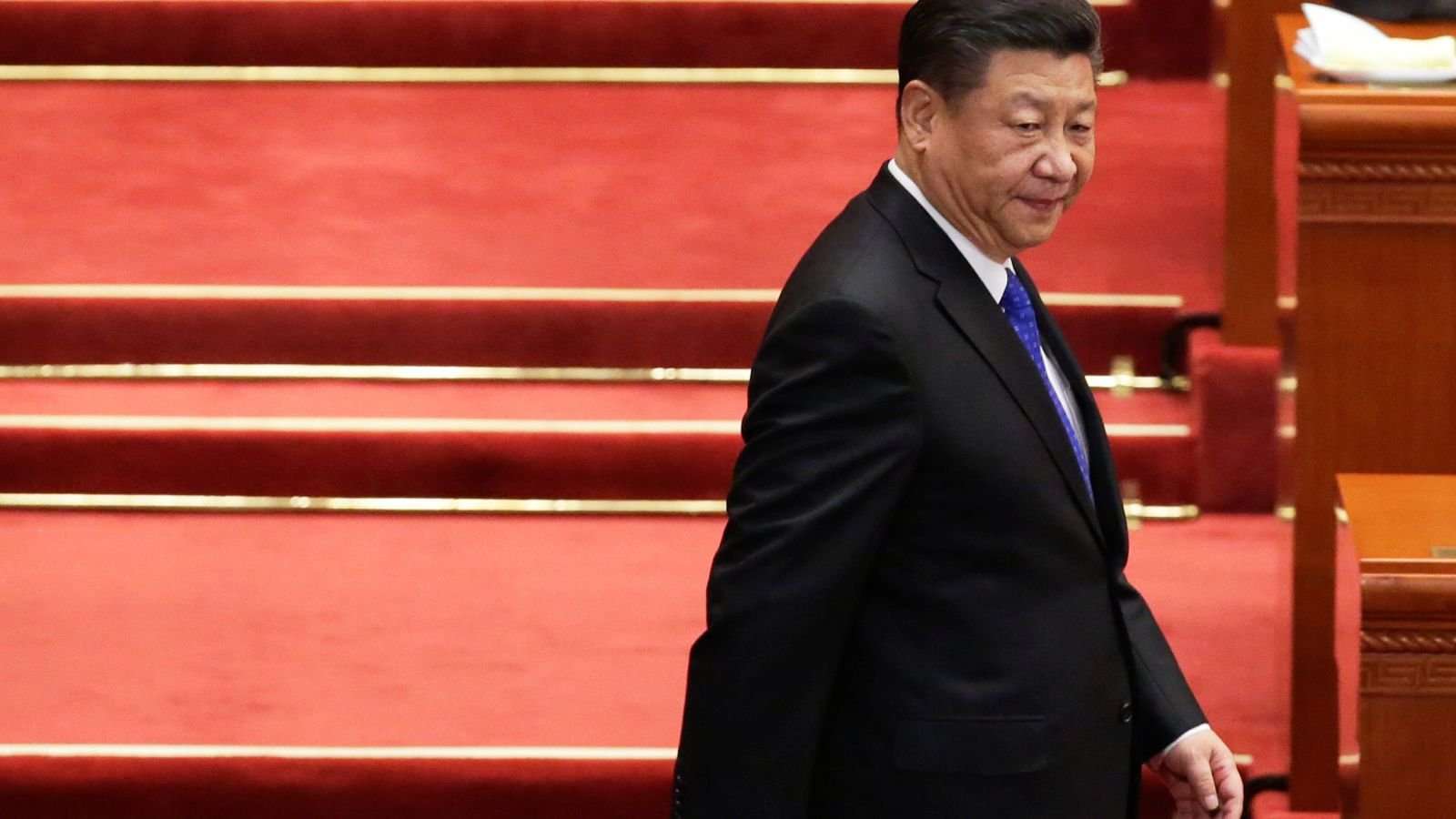Chinese president Xi Jinping has repeatedly told the world that China is ready to lead on issues like free trade and climate change. Now, he’s ready to extend his leadership to political parties everywhere.
At the big annual gathering of Chinese lawmakers and political advisors that kicked off March 3, Xi said that China is offering a “new type of political party system”—a Chinese solution that contributes to the development of political parties around the world, according to state media (link in Chinese).
The Chinese Communist Party (CCP) has always said the country will never copy the political systems of other countries, in particular the Western notion of democracy. But under Xi—the most powerful Chinese leader in four decades—China’s own one-party system is one that is ready to be exported to regimes everywhere.
The term “new type of political party system” was first put forward by Xi when he delivered a speech to non-party political advisors on March 4. It’s not the first time that Xi has floated the idea that China’s political model can make a contribution to the world. This time, however, Chinese state media churned out a wave of articles to underscore the significance of this new phrase.
In the past, “some people lacking self-confidence always use Western political theories to criticize China’s political party system,” wrote Wang Xiaohong, an academic from the party-backed Central Institute of Socialism, in a commentary (link in Chinese) widely circulated by Chinese news outlets.
But as Wang argues, Western political systems are associated, among other things, with fractured societies, inefficient government, and “endless power transitions and social chaos” as in the countries of the former Soviet Union, and in north Africa after the Arab Spring. “The new type of political party system has overcome all sorts of problems that the old [one] can’t overcome,” Wang argued.
In China, there are eight so-called “democratic parties” that are allowed to participate in the political system, but they are almost completely subservient to the CCP. Every year in March, members of the minor parties meet with their communist counterparts in Beijing to provide advice on everything from healthcare to poverty reduction—largely for show. The system—called “multi-party cooperation and political consultation under the CCP’s leadership”—has been used as evidence that China is also a democracy.
The internationalization of China’s political system is in fact well underway. Since 2014, the Communist Party has hosted an annual summit in Beijing inviting political party leaders from around the world to hear about how it governs China. In recent years, the party has also brought young African politicians to China for training, in a bid to cultivate allies.
When asked whether China is deviating from its self-avowed policy of noninterference in other countries’ affairs, Chinese foreign minister Wang Yi said yesterday (March 8) that China will “participate more proactively” in reshaping global governance and solving international crises.
At this month’s political meetings, China’s legislature is expected to ratify a proposal to remove the 10-year, two-term limit for the presidency from the country’s constitution, potentially paving the way for Xi to stay in power for life. A Bloomberg report from earlier this week said, citing sources, that Xi is seeking to pass a government restructure plan that would see some party organizations completely absorbing state agencies.
Who else might be a fan of China’s political system? US president Donald Trump reportedly made the following closed-door remark on the possible removal of the presidential limit in China: “Maybe we’ll have to give that a shot someday.”
Read next: What China’s Xi Jinping wants with all that power

NSA-SURVEILLANCE on March 9th, 2018 at 10:22 UTC »
That's a no from me, dawg.
CD6730 on March 9th, 2018 at 09:59 UTC »
It's a no from me, thanks.
alternate-source-bot on March 9th, 2018 at 09:43 UTC »
When I first saw this article from qz.com, its title was:
Here are some other articles about this story:
China News Service: Xi urges energizing rural areas Reuters: Indefinite rule for China's Xi snuffs out activists' reform hopes lmtonline.com: The rebirth of the 'bad emperor' rfa.org: China on Track For 'Return to Mao Era' of Ideological Controls: Analysts spiked-online.com: Xi Jinping: president for life? The Economic Times: Chinese President Xi Jinping unlikely to lose term limit vote Los Angeles Times: Want insight into China's political situation? Keep an eye on new animal memes straitstimes.com: NPC 2018: Chinese President Xi Jinping unlikely to lose term limit vote blogs.timesofindia.indiatimes.com: Undisrupted term of Xi Jinping: An eerie similarity to Mao Zedong and cost to regional stability the-star.co.ke: Why China's removal of term limits is a gift to African despots The New York Times: Murmurings of Dissent Upset China's Script for Xi's Power Grab Reuters: Xi Jinping's latest tag: living Buddhist deity, Chinese official says taiwannews.com.tw: Chinese students abroad express anger with 'STOP XI JINPING' and #NotMyPresident campaign U.S. News & World Report: Indefinite Rule for China's Xi Snuffs Out Activists' Reform Hopes news.abs-cbn.com: Spoiler alert: Xi unlikely to lose term limit vote uk.businessinsider.com: China Is leading a once-in-a-generation shift to inflation allafrica.com: Africa: Why China's Removal of Term Limits Is a Gift to African DespotsI am a bot trying to encourage a balanced news diet.
These are all of the articles I think are about this story. I do not select or sort articles based on any opinions or perceived biases, and neither I nor my creator advocate for or against any of these sources or articles. It is your responsibility to determine what is factually correct.